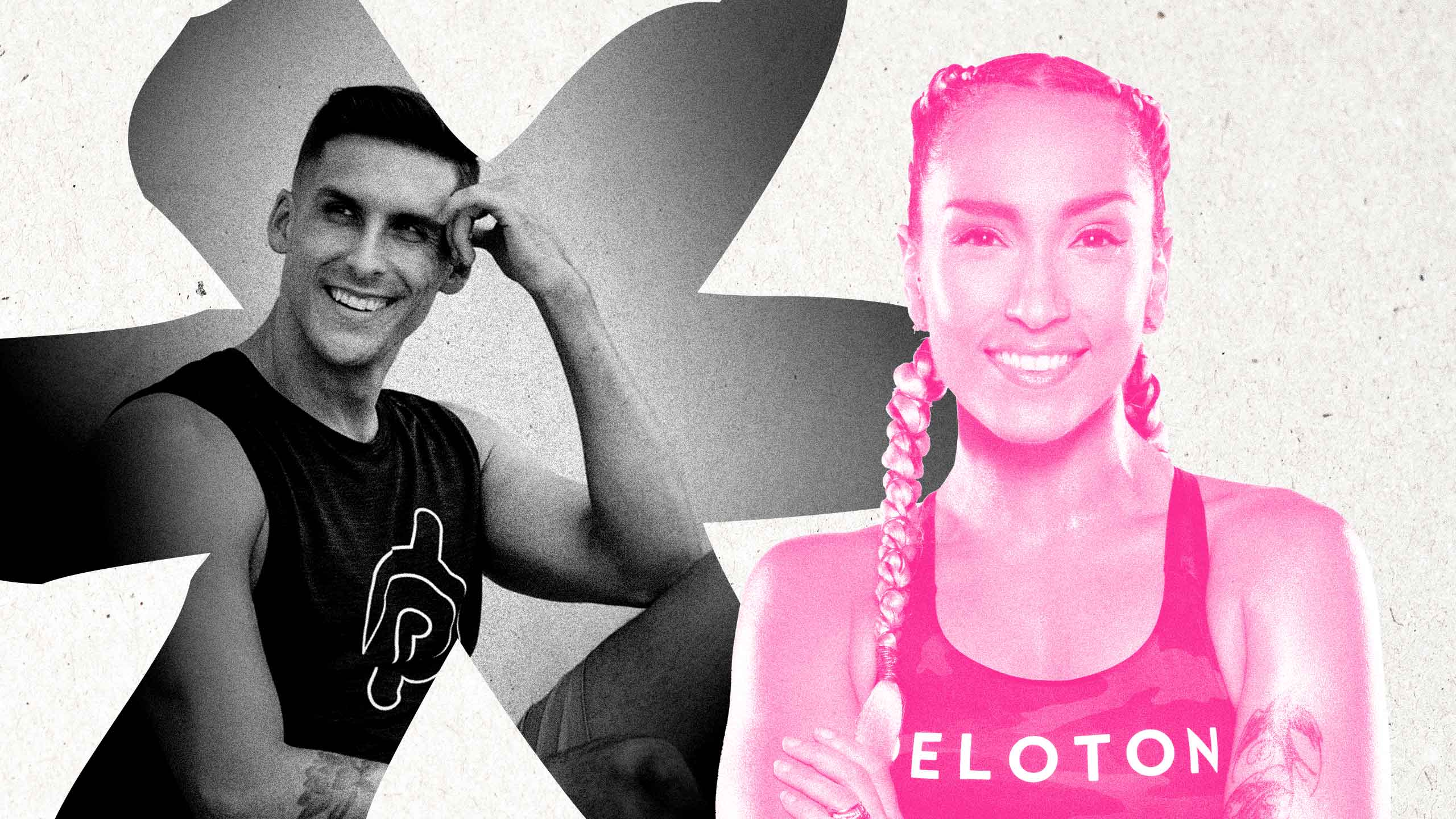Hi, friends! I’m Michelle da Silva, Xtra’s audience engagement editor, which is a fancy way of saying I’m the person reading your comments on Facebook and choosing *just* the right GIF to accompany a story on Twitter. Yes, I’m one of those annoyingly optimistic people about social media, even more so after nearly a year spent in physical isolation from others.

If you don’t already follow me on Twitter and Instagram, and this is the first time we’ve met online, here’s more about me: I’m bisexual, mixed-race and small (about 10 inches less than what is considered “safe physical distancing” between humans). I love musical theatre and wearing berets, hate blue cheese and 3D movies and had my canine teeth extracted when I was 11. What can I say, I’m the very model of a modern queer woman!
Based on all of that info, I bet you’re wondering what fun and exciting things I have planned for you in this week’s newsletter. Remember, “Topline” is just a sample, so be sure to subscribe to Xtra Weekly to get the complete experience!
What’s the buzz🐝
I never thought I’d be one of those people who owned fitness equipment, let alone a really expensive stationary bike, but here we are, nearly a full year into the pandemic in Toronto, and I’ve spent my hard-earned money on a Peloton bike. What is a Peloton, you ask? Good question. A year ago, I had also never heard of such a thing, despite the company’s extremely cringe-worthy holiday ad in 2019.
Peloton is an exercise equipment company that makes stationary bikes and treadmills that include a touchscreen for subscription-based live and on-demand classes. A rider’s output is displayed on-screen and ranked amongst everyone who’s taken that class on a leaderboard, similar to playing an online video game.
In the three months I’ve had my Peloton, I’ve ridden my bike nearly every day, logging in close to 80 classes. And while I expected to feel stronger and perhaps slightly firmer, I didn’t anticipate feeling more connected to the LGBTQ2S+ community or reaffirmed in my queerness.
What were we thinking 💪
Let me preface this by saying: I’ve never considered myself an athletic person. My body is not especially fast or strong, and my hand-eye coordination isn’t great (please do not throw anything at me 😬). I found “my people” by Fosse-kicking through high school musicals, writing angsty teen poetry and co-founding the extremely nerdy bilingual debate club.
So when gyms shut down indefinitely last March, I wasn’t all that disappointed. Despite the fact that I had a membership to one, I loathed everything about its culture. From the constant reinforcement of gender stereotypes—including an idealization of cis bodies and colonial beauty standards—to the uninspired decor and militaristic setup of equipment, everything about the gym I attended felt fundamentally unqueer.
A few months into the pandemic, I learned about Peloton through my sister, who had decided that with two young kids—lockdown or not—she’d likely never have time to step foot in a gym again. After nearly throwing my back out balking at the several-thousand-dollar price tag, I bought a rainbow-hued basketball for $30 and vowed to shoot hoops outside the neighbourhood school. My Space Jam dreams lasted a few months, but with winter looming and the realization that maybe a steady flow of endorphins might ease my seasonal blues, I bought a Peloton, too.
Several times a week, I sat on that bike, pedalling as fast and as hard as I could. My fitness improved, but what surprised me most was the connection I started to feel with the strangers on my screen.
One of the most popular instructors is Cody Rigsby, an unapologetically fabulous gay man from North Carolina, y’all. While Rigsby looks like someone who might’ve been a popular high school jock, he developed his muscles as a professional dancer. He truly relishes in his queerness, serving hot takes on everything from the best Thanksgiving dish (obviously, the glistening mac ‘n’ cheese, and not the “dry-ass turkey”) to Britney Spears (spoiler alert: He loves her).
Another favourite is Robin Arzón, whose message of diversity is grounded in her immigrant family’s Latinx heritage. Her classes always feel inclusive of all bodies and abilities, and she constantly reminds riders to be proud of who they are—and one particular moment made my eyes well up. As I mouthed the words to Lady Gaga’s “Born This Way” while tackling a steep hill, Arzón declared: “Kings, queens and non-binary royalty, let’s ride together. We don’t leave anyone behind.”
Queer and trans riders are often visible at a glance, with hashtags like #PelotonPride, #PelotonLGBTQ and #BooCrew (a nod to Rigsby calling everyone his “boo”) scattered across the leaderboard. We throw virtual high-fives at each other during rides, and connect with one another on social media between classes. Some days I feel like I’ve found a secret club, taken in by a community of strangers where we’re all both jocks and cheerleaders.
When I’m on my bike and a ride feels hard, I think about those of us who never made it onto a sports team. I think about folks who never felt safe or welcome at the gym. And I think of my queer and trans siblings who wouldn’t dare call themselves athletes. I smile at the absurdity of finding connection, community and endorphins while alone in this corner of my home, and then I wipe the sweat from my brow and pedal harder.
Other Xtra news
👉We spoke to U.S. Senator Sarah McBride about coming out as trans, her plans for tackling Delaware’s multiple concurrent crises and why she believes Joe Biden will be the president who signs the Equality Act into law.
👉Who do you want to be in charge of you while you try not to die? Nancy Irwin writes about why it’s important for queer and trans folks to have a power of attorney for making decisions about your health care if you become incapacitated.
👉Since many LGBTQ2S+ people often have limited support systems, adopting a rescue dog is a chance to add a new member to their chosen family. Contributor andrea bennett writes about a unique bicontinental project, Don’t You Want Me.
👉Want more headlines? Subscribe to Xtra Weekly.
Gifbox
Werk it out, y’all!



 Why you can trust Xtra
Why you can trust Xtra


